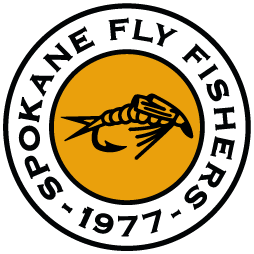More of “What’s in a Name”. Last month I opened this column with the topic “What’s in a Name?”. Continuing that, I want to discuss the only book ever written by Sparse Grey Hackle, Fishless Days, Angling Nights. “Sparse Grey Hackle” is the pseudonym adopted by Alfred W. Miller, perhaps America’s premier fly fisher during the first half of the last century. Miller wrote many articles and published in such periodicals as Life and The Wall Street Journal, as well as such sporting publications as Sportsman, Sports Illustrated, and American Angler. He was much more than an angling author; he was one of the first to lend his writing talents to conservation. He became alarmed at the efforts to dam his favorite Catskill streams, most notably
the Neversink. In fact, several of the photo illustrations in Fishless Days… are underscored by captions sadly noting that they are of pre-reservoir water (prior to the construction of the LaGuardia (now Neversink) Reservoir). Particularly upsetting was the fact that this impoundment would (and did) cover the last residence of Theodore Gordon, to which Miller and his close associates made a documented pilgrimage before it was drowned.
Many noted fly fishers and authors of that day considered Miller to be the Dean of American Fly Fishing. His credits for such recognition include the fact that he, more than any other individual, bridged the gaps between the early eras of North American fly fishing, into the second part of the 20th century and a time some of us can recall. He published his one book in 1971, yet he numbered among his associates Herman Christian and Roy Steenrod, two of Theodore Gordon’s closest fishing companions, as well as Edward Hewitt, another Neversink angling regular and author.
The volume, itself, is an angling reader’s joy. Miller employs a unique blend of light humor and satire interspersed throughout a storyteller’s easy narration, soft yet authoritative in style. Those who are fascinated with what we often identify as the recent move of women into fly angling ranks should note his observations on “Woman in Waders”, which turns out to be a dedication of the book to his wife, Louise Brewster Miller, whom he dubbed “Lady Beaverkill”. His stated stereotypes regarding the proclivities of women, set in the framework of angling, are typical of the more common assumptions of the time regarding feminine emotional make up, yet seem humorous today as he relates them in the angling context. (I would certainly NOT want to recite them, though, at a meeting of Women on the Fly…!)
Like many fine authors, Miller has the knack for writing to the reader’s own experiences. Anyone who recalls a childhood fondness for wandering through the various mail order, outdoor catalogues of that time, and being transported to the North woods by the combination of those pictures and imagination, will appreciate the chapter named “The Magic Carpet”. Chapters with such titles as “The First Camping Trip”, “Certain Boys”, “Night Fishing”, and “Nocturne”, all display the author’s ability to delightfully transport the reader.
The chapter entitled “The Quest for Theodore Gordon” deviates from the more light-hearted style and reads much like the chronicle of an investigative journalist. His search for Gordon’s burial place, and it’s ultimate discovery, are as spell-binding as any noble quest. Fascinating photographs help document the effort and give a feel for the final, surprising discovery. His interviews with Christian and Steenrod reveal a great deal about Gordon’s peculiarities, among which are that he was a diminutive 5 feet, 2 inches in height, weighed scarcely 90 pounds, rolled cigarettes between the thumb and forefinger of one hand, and was very secretive about his fly tying, to the point of removing a partially finished fly from his vice should company arrive. Also, he suffered in his final years from tuberculosis and ultimately succumbed.
Borrow Fishless Days, Angling Nights from your SFF Library for a fascinating visit with some of the fathers of North American fly fishing, as well as for an easy, sometimes amusing read that will cause you to revisit your own experiences growing in our sport.
